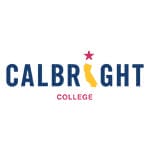Expanding Career Opportunities for Working Adults in California
HIGHLIGHTS
- More than 90 million Americans over 25, and nearly 11 million Californians, have completed high school but do not have a postsecondary credential.
- Flexibly paced online programs have the potential to help close this gap for adults left behind by traditional colleges and universities, but they can also create or amplify behavioral barriers to persistence and completion.
- ideas42 is helping to integrate behavioral insights into the core of Calbright College, a new online community college in California, to address these behavioral challenges and keep more adult learners on track to receive industry-recognized certifications in high-growth fields.
- Results from our initial wave of pilot tests demonstrate the power of this data-driven approach to generate solutions that can improve student outcomes.
The Opportunity
Nationwide, nearly half of American adults believe they need additional education or training to advance professionally, but for many, traditional colleges and universities are not a practical option. They are caring for children or parents, working one or more jobs, and often lack the financial cushion needed to attend college. Without these educational opportunities, they may be unable to access the careers necessary to establish a stable foothold in a rapidly evolving economy.
To address this gap in the higher education landscape, the state of California established Calbright College in 2018 as a new kind of community college designed specifically for working adults seeking to change careers, upskill, or re-skill. Fully online, flexibly paced, and currently free to California residents, Calbright allows students to work toward an industry-recognized certificate wherever and whenever is best for them, and its competency-based model means student progress is based on mastery of coursework, not hours spent in a classroom.
Calbright has grown considerably since its inception—with nearly 4,000 enrolled students and over 500 certificates awarded as of early 2024—and continues to open new programs that give adult learners entry points to high-growth industries. In addition to addressing structural barriers to access, Calbright aims to ensure its programs maximize student engagement and success by integrating behavioral insights into subtler, sometimes surprising barriers that can throw learners off track. For example, while eliminating fixed terms and deadlines can offer a student–parent much-needed flexibility, it can also create ambiguity and confusion around how they should pace their progress through the program. Similarly, although asynchronous online learning makes education much more accessible for working adults, it can also make it difficult to form a sense of belonging and community closely associated with persistence and completion without intentional design.
Our Approach
For over a decade, ideas42’s postsecondary education team has been working to identify the behavioral barriers impeding student success, and then design and implement interventions to help students overcome those obstacles. More recently, we’ve tackled the challenges of supporting students in online learning and helping more adult learners (re)enroll in college.
Building on this foundation, ideas42 is partnering with Calbright and the UC Irvine School of Education to apply behavioral and data science strategies to improve educational and career outcomes for Calbright’s target population of working adult learners. In close collaboration with ideas42 academic affiliate Ben Castleman at the University of Virginia, we’re driving several activities to build a portfolio of rapid-cycle innovation around Calbright’s model of student success:
- We’re guiding cross-functional Calbright teams through a series of behavioral design sprints that scaffold the application of behavioral insights to the development of testable student success solutions. Over the course of 10 to 12 weeks, teams of ideas42 and Calbright staff jointly translate high-level goals into concrete opportunities to leverage behavioral design, then conduct a behavioral mapping to hypothesize barriers holding students back, and ultimately generate targeted design concepts to help students overcome those barriers. These design concepts are then piloted through rapid-cycle exploratory evaluations that generate evidence on promising practices that can be scaled across Calbright programs and inform broader lessons for the field.
- We’re also building Calbright’s internal capacity by leveraging behavioral science–based frameworks, tools, and tactics through a series of behavioral insights labs. Built around a three-stage behavioral model that focuses first on capturing student attention, then building student intention, and finally facilitating student action, these highly participatory sessions involve a mix of expert-led presentations and participant-driven activities that guide the Calbright team in applying behavioral insights to their student outreach and engagement efforts.
- A third focus of our work has been enhancing student-facing communications, platforms, and services through two complementary activities. First, we’re running a behavioral communications review to assess Calbright’s text and email messaging and identify evidence-based opportunities to improve their effectiveness. Second, we’re conducting a behavioral diary study to surface deeper insights into ways to streamline the learner pathway at Calbright through a longitudinal approach that embeds a designer in the core of the student experience by having them enroll in a program. These activities serve the dual goal of recommending changes based on behavioral best practices and identifying opportunities for iterative improvement through A/B testing.
The Results
Co-designing new approaches to supporting adult learners that can be rapidly piloted and evaluated has been a central focus of this initiative, and our collaborative efforts have already yielded tangible results.
- We’ve kept students on track to their completion goals through personalized timelines. Removing deadlines and rigid academic terms gives adult learners needed flexibility, but it can also create a lack of structure that makes it hard for students to benchmark their pace and progress. Using past data from students who completed Calbright programs, we collaboratively built a set of timelines that students could pick from to help them scaffold their self-paced learning. During their program onboarding, we gave students a quick survey to match them to their best-fit timeline, then sent them weekly outreach based on their progress relative to their chosen timeline. In a controlled pilot test, students who were offered timelines completed roughly 30% of program assignments in their first month, compared to less than 20% for students in a control group—a roughly 50% relative increase.
- We’ve driven engagement with support teams and resources through short-form mobile videos. While Calbright’s all-online format is a key reason many students choose to enroll, it can also make the challenge of keeping learners engaged even more pronounced. To tackle this issue, we produced a series of 60-second mobile videos—similar to the kind of user-generated content found on products like TikTok or Instagram Reels—to foster a sense of interpersonal connection between Calbright faculty and students. A series of pilot tests that layered the videos into Calbright’s existing text and email communications demonstrated their power to drive student engagement with varied processes and services. In one A/B test, the group that received the video message had increased levels of persistence through each step of Calbright’s enrollment process, ultimately leading to a roughly 15% relative increase in the share of prospective students who went on to complete the first assignment in their program.
- We’ve helped learners complete tough assignments through peer-led workshops. Asynchronous learning gives working adult learners the freedom to work whenever is best for them, but it can also make it more challenging for students to get real-time help when they run into difficulties. To help Calbright students push through points in their program where data suggested higher rates of drop-off, we collaboratively developed a set of targeted workshops led by peer tutors that support students with relevant content and assignments, then proactively reached out to students to invite them to attend upcoming workshops as they approached the target points in their program. We’re actively piloting this approach to assess its impact on student outcomes, but early evidence from student interviews suggests the workshops help boost student confidence, motivation, and engagement.
Takeaway
Too many working adults seeking new career trajectories fall through the cracks of the U.S. higher education system. New models like Calbright’s can help plug these gaps by eliminating structural barriers that keep traditional colleges and universities out of reach for millions of Americans. By leveraging behavioral insights across the student journey through a process of rapid-cycle design and testing, ideas42’s partnership with Calbright aims to generate fresh evidence on promising new practices that can boost educational and workforce outcomes for adult learners at Calbright and beyond.
Follow @ideas42 on Twitter to learn more about our work. Contact us at education@ideas42.org with questions.
Partners







